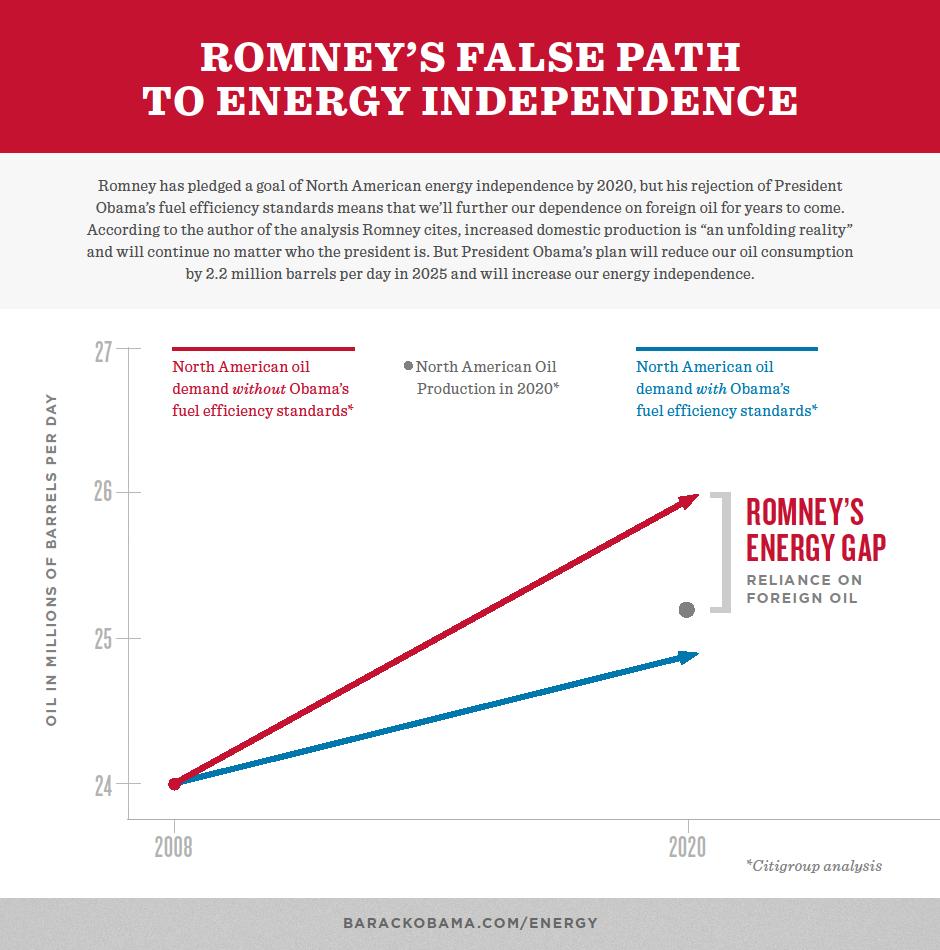
Tuesday night's exchanges on energy between President Obama and Governor Romney never touched on that point -- but its oddly crucial in understanding the Romney "energy independence for North America" plan.
When moderator Candy Crowley repeatedly asked both Obama and Romney about the price of gas, Romney responded with his solution -- build a pipeline to bring more Canadian tar sands crude across the United States to be shipped to Europe.
He calls this "energy independence" -- but to do so he has to a) treat Canada as a new U.S. possession - which will surprise Prime Minister Steven Harper and b) ignore the reality that the tar sands oil Romney promises to import to achieve "North American energy independence" is and will be the most costly oil in the world. Estimates of the costs needed to pump the volumes of tar sands oil Romney's is counting on range from $80-$115/ barrel. All of those numbers guarantee gas at the pump north of $3.50/ gallon.
But Romney's plan takes the U.S. away from both energy independence and cheaper gas prices in another crucial way. Romney would dump current pollution and fuel economy standards for cars -- standards supported by American auto makers, but opposed by luxury European brands which have chosen not to invest in hybrids or electric vehicles.

Eliminating these standards will, as shown on the chart, increase American oil imports by 2.2 million barrels a day in 2020, at a cost of our economy of $68 billion, paid by American drivers to the Koch Brothers and Canadian oil producers -- in addition to the increased prices for the rest of our oil which will result from reliance on costly tar sands oil to set the market price. Having thrown away our cheapest way to achieve energy independence -- efficiency -- Romney then puts in its place the most expensive -- $90 oil from Canada.
Obama called Romney on his willingness to let the U.S. auto industry go down the tubes -- and emphasized his focus on both halves of the energy equation, demand and waste as well as supply. Romney tried to reclaim his historic green patina by claiming, "I believe very much in our renewable capabilities; ethanol, wind, solar will be an important part of our energy mix."<
This is hard to square with Romney's support of major tax increases for wind, and his attack on Obama in the first debate for favoring renewables. In fact, Romney has said of renewables, "In place of real energy, Obama has focused on an imaginary world where government-subsidized windmills and solar panels could power the economy."
But the grim fact that Romney wants to import more Canadian tar sands oil in place of encouraging American automotive innovation and the factory jobs that go with it has still not sunk in to most of the voters -- or the media who support them -- in part because Obama hasn't yet nailed the issue himself.
But since the next debate is about foreign policy there's still a chance. Of course, since on Romney's foreign policy website Canada still doesn't appear to exist, perhaps Mitt is genuinely confused about the fact that when he drove his Irish Setter on the roof of his car he actually smuggled him into a foreign country.
A veteran leader in the environmental movement, Carl Pope is the former executive director and chairman of the Sierra Club. Mr. Pope is co-author -- along with Paul Rauber -- of Strategic Ignorance: Why the Bush Administration Is Recklessly Destroying a Century of Environmental Progress, which the New York Review of Books called "a splendidly fierce book."